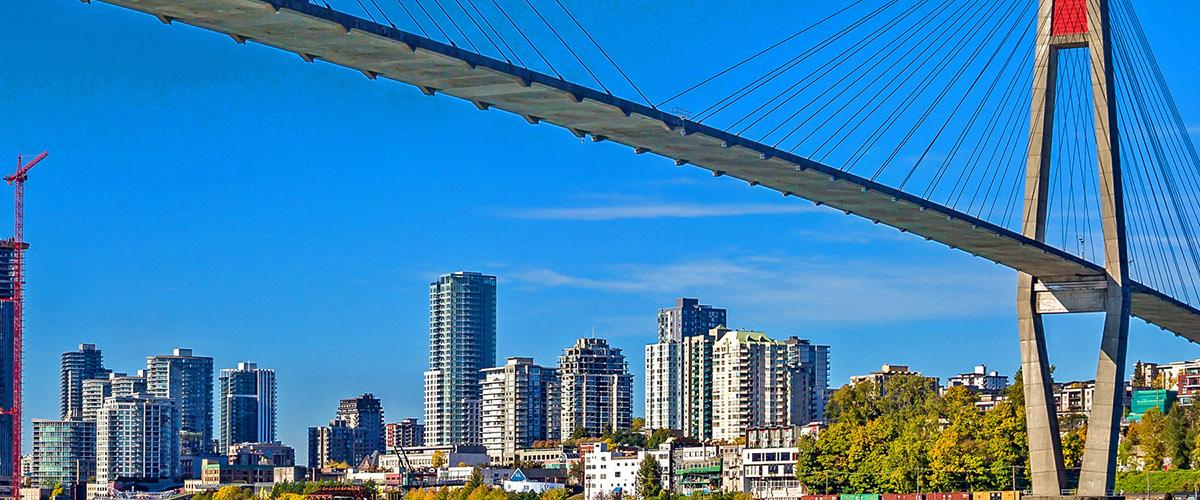Transportation and Living Arrangements


JIBC does not offer or provide any on-campus housing. All students arriving from outside the Metro Vancouver region are responsible for finding their own accommodations.
The following information will help you find housing, understand our regional transportation, and access resources that address food insecurity in our community.
Be cautious when searching for accommodation and remember to view the inside of a property before you sign a lease or pay any money. Tenants (renters) have rights and responsibilities that are regulated in Canada. The following resources will provide you with more information on renting in Canada.
The following resources can help you find accommodation that best meets your needs. These sites are provided as a resource courtesy to students. JIBC does not endorse these sites or their listing and does not take responsibility for off-campus rental accommodations.
When finding your accommodation consider important details including the location, travel time to JIBC and shopping centres, public transit, amenities, and available dates to move in and move out.
If you are unsure of your options or are wanting to take your time finding the perfect place to live, here are a few short term options while you look for permanent accommodation:
Many international students choose to live in a homestay environment for their first few months in Canada. The homestay organization will source accommodation based on your interests and individual requirements. The homestay families are carefully screened and selected to ensure the best possible experience.
Some students choose to live in buildings rented as student accommodations. These student accommodations are not restricted to students from a specific institution. Generally these rentals are furnished and are close to public transit.
There are many different types of living arrangements available, including studios, one or two-bedroom apartments, basement suites, a single room in a house, shared houses, etc. Are you interested in living with someone else, or would you prefer to live alone? Living with a roommate, or renting a room within a family home, saves money plus it could make the cultural transition easier.
These are a few local webpages available that you can source to find accommodations:
Rents vary greatly depending on apartment location, age and condition. For example, it is generally more expensive to rent in a condominium building than an apartment building, and locations close to Vancouver city are typically more expensive than elsewhere in the Lower Mainland. Keep in mind, these are only general guidelines for cost.
Numbeo offers a cost of living calculator to help estimate expenses for major cities around the world including New Westminster and Vancouver.
| Housing Type | Rental Average |
|---|---|
| Shared with roommates | $1,000.00 |
| Bachelor/studio | $1,800.00 |
| One-bedroom | $2,199.00 |
| Two-bedroom | $2,920.00 |
Additional costs might include:
Vancouver's regional public transit agency, TransLink, provides extensive transportation services in Metro Vancouver, including Bus (road passage), SeaBus (passenger ferry), SkyTrain (automated rapid transit system), and West Coast Express (commuter rail) services. Detailed information regarding schedules, maps, and fares can be found on the Translink website.
The public transportation system is an easy and affordable transportation option for students who do not have access to a personal mode of transportation (such as a car). There are also many bike trails throughout the region.
If you plan to land at the Vancouver International Airport (YVR) in Richmond, you have the option of taking a taxi, using a ride-share service or using TransLink public transportation to get to your next destination in the Metro Vancouver area. Rates vary, depending on your destination and your mode of transportation. If you will be living in the city of New Westminster it is recommended that you take a taxi or use a ride-share service from the airport to your new home.
YVR offers a list of resources, and how to access them from the airport, on their website.
Before you leave the airport have the street address and city for your destination.
Estimated costs of travelling from the Vancouver International Airport to New Westminster:
| Transportation | Travel time (approx.) | Cost |
|---|---|---|
| Taxi | 30 minutes | $60 - $75 |
| Ride-Share (Uber/Lyft) | 40 minutes | $30 - $40 |
| Transit (Train/Bus) | 1.5 hours | $4.25** |
** An additional $5 AddFare applies for single-use fares purchased at the Vancouver International Airport (YVR) station.
There are a number of resources available that address food insecurity in our community, in an accessible and respectful manner. The following food banks around the Lower Mainland might be able to assist international students: